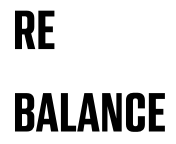PRESS RELEASE: Climate crisis is a global health crisis.
With COP26 just around the corner and kicking off on 31st October in Glasgow, Re-balance is taking a stand that more needs to be done to address the climate emergency. We know we can make an individual difference but together we can make change happen. We’re proud to be partnering with World Citizen Artists, Bristol Students Union, the World Federation for Mental Health to deliver an exceptional creative interruption to COP26 where we spill the tea to inspire and empower.
This partnership fully embraces that the answers to some of the challenges we face when it comes to planetary health lie in the minds of our next generation of leaders. We’ll be handing over the world stage to students to lead a ground-breaking global event, highlighting the intersectional crisis with planetary and mental health.
The event aims to elevate unheard voices from global artists, students and other NGO’s in light of the recent IPCC report on the human impacts of climate change. The two day global event will include panel discussions where students, experts, leaders, activists, and TED speakers will discuss the impact of climate change on people’s psychological well-being.
The aim is to encourage interaction and debate so that students can learn more about real-world experience and reflect on their role and action when it comes to changing our future.
“Climate change and mental health are global challenges we all face. Empowering the new generation with real-world experience and knowledge means empowering our future. Artists from our community are very supportive of the next generation and it's been amazing to see students, creatives, leaders, experts and activists getting together to share their common goals. This shows the world can come together no matter what our differences. We should give a chance to the next generation, and help them succeed” - says Valerie Won Lee, founder of World Citizen Artists.
Young people are having to deal with the prospect that the world is psychologically unsafe, it’s a place where they don’t want to raise a family or having to deal with the physical impacts of climate change such as extreme change in weather leading to floods and drought. The ripple affect of climate change is huge and is affecting our lower income and marginalised communities and individuals the most. The damage of climate change is vast.
Take Bangladesh as an example. By 2050, with a projected 50 cm rise in sea level, Bangladesh may lose approximately 11% of its land, affecting 13 million people, and potentially displacing over a million. Most of these people will have lived and worked off of the land now under water; this is people’s homes, livelihoods and even lives we are talking about being destroyed. We also know that women and young girls are most effected and we need to do more to protect them and their futures.
Bangladeshi women are disproportionately living in poverty, more likely to have a poorer nutritional status, receive less and poorer-quality healthcare, and their wages are lower, making it harder to survive post-displacement. They are bound by family responsibilities, both to their children and the elderly, and therefore many remain in dangerous situations when disaster strikes.
“If the environment we live in starts to be threatened or destroyed, we ourselves start to feel vulnerable. Nearly 1 million people take their own lives every year. That’s 1 person every 40 seconds. We cannot see this number increase due to the increasing impact climate crisis is having on our mental health. Climate crisis is a global health crisis. It’s not enough to say we will address it in 30 years time with our 2050 ambitions, we need to take more action with impactful results now for the sake of our future generations and the survival of humanity” - says Emma Gunn, CEO of Re-Balance.
Our CEO, Emma Gunn, will be joining panelists including Elizabeth Wathuti, Kenyan environmental and climate activist and founder of the Green Generation Initiative as well as multi-millionaire tycoon and founder of the World Toilet Organisation, Jack Sim. Panelists will be in discussions with Oxford and Bristol students, as well as a member from the climate, sustainability, and energy group Y20, representing the U.S. delegation to the G20 Youth Summit.
Also included in the line up is Miss Environment Africa Nazarene University 2021, Fionah Njeri and international Maori Artist George Nuku. Musicians, including Colombian singer/songwriter Marta Gomez, will be performing at the event, using their creative talents to give voice to the climate crisis and the challenges it brings.
ENDS
Event tickets: https://hopin.com/events/the-impact-of-climate-change-on-mental-health
To find out more about the event: https://www.worldcitizensociety.org
About Re-Balance: Our work reviews the assumptions that uphold inequality, perpetuate discrimination, hinder mental health and well-being. We work to move individuals, organisations, businesses, communities, and governments to adapt and adopt changes that empower us all to create a better world. www.re-balance.org
About World Citizen Artists: World Citizen Artists is a global movement of socially engaged artists, creatives, and thinkers whose aim is to create effective and evolutionary change in the world through events, exchanges, and other opportunities involving the use of art to raise global awareness. https://www.worldcitizenartists.org/
Bristol Students Union: The University of Bristol Students' Union (known as Bristol SU) is the students' union of the University of Bristol, England. It is among the oldest of the UK students' unions and was a founding member of the National Union of Students. Bristol SU runs over 330 societies, sports clubs, groups and support networks. https://www.bristolsu.org.uk/
Photo by: Markus Spiske on Unsplash
